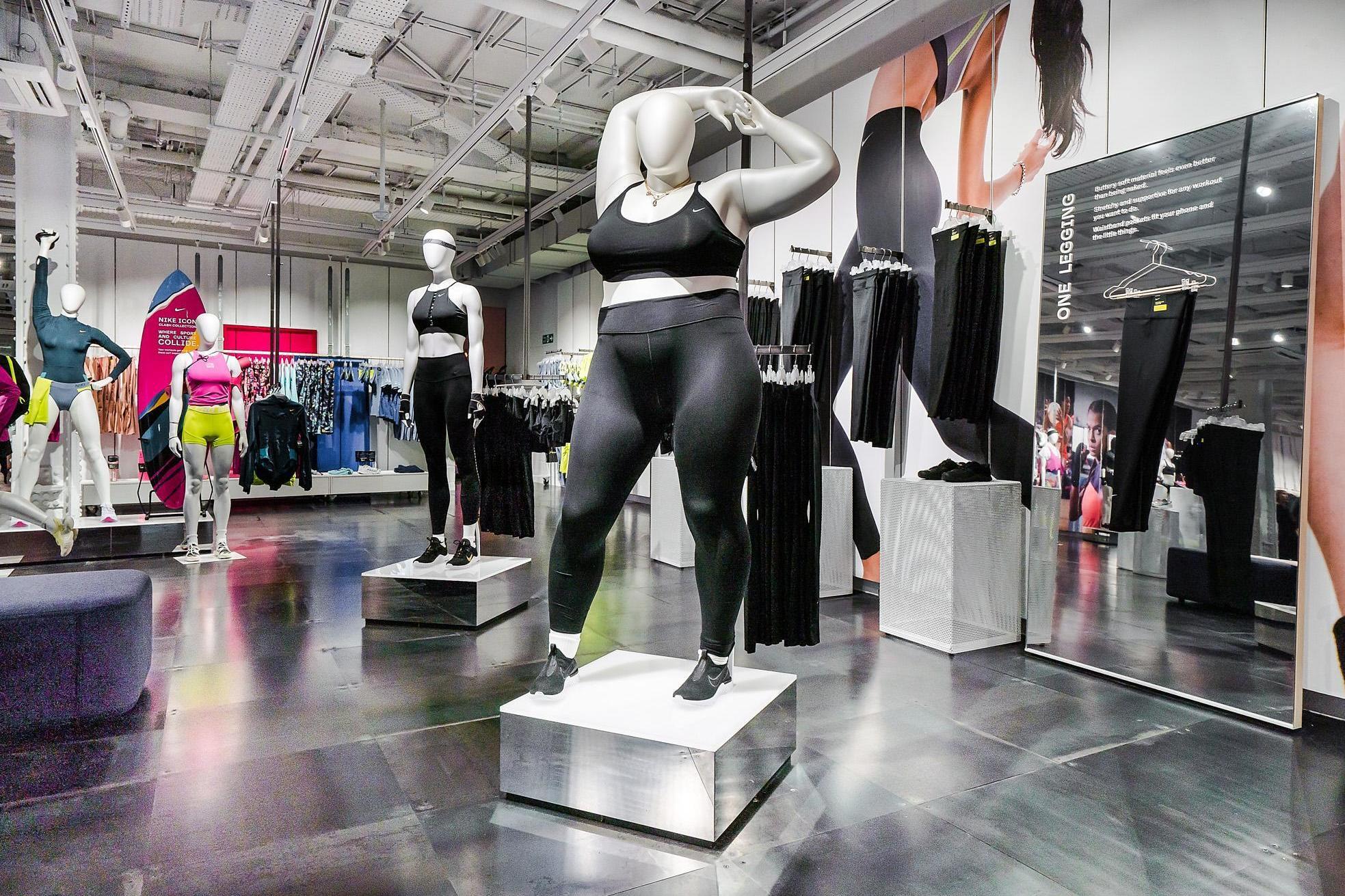The Independent's journalism is supported by our readers. When you purchase through links on our site, we may earn commission.
Nike’s plus-sized mannequins don’t ‘promote’ obesity – they reflect reality. Why on earth is that an issue?
Having worked with the company to push plus-sized representation in its stores, it baffles me that someone would be so incensed by the reinforcement of the idea that weight loss is not the only goal in fitness


Your support helps us to tell the story
From reproductive rights to climate change to Big Tech, The Independent is on the ground when the story is developing. Whether it's investigating the financials of Elon Musk's pro-Trump PAC or producing our latest documentary, 'The A Word', which shines a light on the American women fighting for reproductive rights, we know how important it is to parse out the facts from the messaging.
At such a critical moment in US history, we need reporters on the ground. Your donation allows us to keep sending journalists to speak to both sides of the story.
The Independent is trusted by Americans across the entire political spectrum. And unlike many other quality news outlets, we choose not to lock Americans out of our reporting and analysis with paywalls. We believe quality journalism should be available to everyone, paid for by those who can afford it.
Your support makes all the difference.It was around 9pm yesterday after I had just come back from a 5k jog around Greenwich Park when I was met with an abundance of notifications. I checked to see what the commotion was about and it turns out some inevitable but nonetheless not-so-great opinions came to surface about the plus-sized mannequin that launched in Nike Town London recently.
According to journalist Tanya Gold, who wrote the following for The Telegraph on Sunday: “The new mannequin is obese, and she is not readying herself for a run in her shiny Nike gear. She cannot run. She is, more likely, pre-diabetic and on her way to a hip replacement. What terrible cynicism is this on the part of #Nike?”
As a plus-sized woman myself, I’m usually able to ignore these things – but something felt terribly off about this diatribe. I couldn’t fathom why on earth somebody would proudly and publicly beef with a plastic mould.
Fitness and sports campaigns have never really been size-inclusive. Historically, they have warped our perception of what it means to be fit and capable of moving our bodies. I’ve done a few runs myself, and I’ve worked internally with Nike London in order to push plus-sized representation in its stores. Initiatives include the launch for Nike One leggings, which saw three plus-sized women featured on Nike Town’s storefronts; taking part in an official run in partnership with Nike where I documented my entire journey; ideas on activations and imagery we should be using in store; and even a size-inclusive fitness collective. So, I can wholeheartedly say this mannequin was made for everyone but people who have something negative to say about larger bodies.
Nike’s very own mission statement, “if you have a body, you’re an athlete”, is exactly everything this push for inclusivity represents. A fuller-figured mannequin reinforces the idea that weight loss is not the only goal – and sometimes not at all.
I’ve seen comments online that rightfully question the hypocrisy of wanting fat people to work out, but complaining when plus sizes are advertised on the figures they’re made for, but this goes far deeper than having to prove ourselves as worthy of wearing activewear. We simply exist and that in itself should be enough to explain why we deserve to be acknowledged.
If Gold has an issue with the visibility of fat people, fine – a lot of people do. But at the heart of her divisive and misinformed rant is something far more dangerous: the suggestion that she’s somehow qualified to assess the health of all fat people.
I wanted to spend the rest of my time writing this piece on why these mannequins are important in and of themselves, but it should go without saying that having that part of my identity represented is beneficial for me and thousands of other women. The rest of the world is yet to catch up on the many capabilities of fat bodies, but that doesn’t mean we have to explain ourselves when others don’t have to.
The Nike mannequin is contributing to the visibility of fat bodies in a space that is extremely exclusive, which is a great step. I could only imagine what this does and will continue to do for the next generation of young women who are growing up in a world that only caters to the industry’s ideal standard of beauty.
As a 22-year-old fat girl who is still learning and trying to navigate the world in this body, I am slowly unlearning my own and others’ harmful ideas. Our bodies exclude us from more than physical spaces, they exclude us from openly expressing certain emotions too.
We can never be too confident or too proud, because, in the eyes of people like Gold, we’re glorifying unhealthy lifestyles. We can’t be too sad because that means we are “self-piteous”, feeling sorry for ourselves when we should be... what? Hiding ourselves from view instead?
I am dumbfounded that a woman who describes herself as “a recovering addict” in terms of obesity had the energy to criticise a decision that would benefit countless women.
Internalised fatphobia is something that is hard to unpack as we have been conditioned to believe fat bodies can’t do anything other than be lazy, but surely at this point we can’t stupid enough to believe that encouraging all bodies to move is a bad thing.
Join our commenting forum
Join thought-provoking conversations, follow other Independent readers and see their replies
Comments